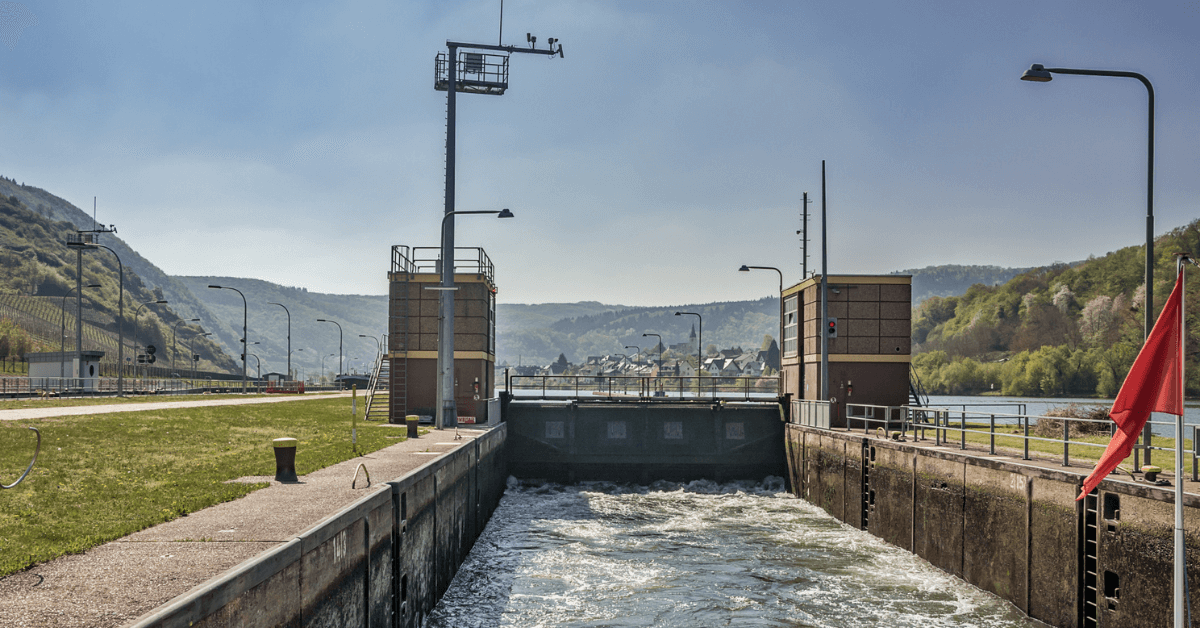
Windward Launches First-of-its-Kind AI Tool To Protect Undersea Infrastructure
February 7, 2025
Video: Sailboat Runs Aground In Violent Seas, 1 Rescued & Another Dead
February 7, 2025

A cargo ship travelling on autopilot crashed into the Muden lock on the Moselle River on December 8, causing major damage and bringing vessel traffic to a halt for nearly two months.
The accident left about 70 ships stranded across France and Luxembourg, forcing authorities to launch an extensive recovery operation.
According to the Koblenz public prosecutor’s office, the inland cargo vessel was moving at a speed of 12.2 km/h (approximately 6.5 knots) when it struck the lock gates.
Investigations revealed that the ship did not attempt to slow down or stop before the collision, despite regulations requiring the captain to monitor the autopilot and intervene if necessary.
Authorities confirmed that the ship was carrying 1,500 tons of scrap metal and was en route to Mertert, Luxembourg, when it crashed.
The impact ripped the lock gates from their hinges, severely damaging the concrete structure and operational mechanism. The lock had been closed in preparation for a vessel transit when the accident occurred.
Prosecutors stated that there were no technical failures with the vessel’s engine or control systems at the time of the incident. Additionally, no traces of alcohol or drugs were found in the captain’s systems.
However, investigators have not yet determined why the captain failed to intervene before the crash. Video footage confirmed that the vessel continued moving without braking until it hit the lock.
Officials overseeing the waterway stated that under Moselle River regulations, autopilot use is allowed, but only if the captain remains alert and ready to take control when needed. River authorities implemented an emergency plan to free the stranded vessels immediately after the accident.
A temporary solution using dam beams- typically used for emergency closures during maintenance- was put in place to allow some lock operations. It took until December 27 to clear all the trapped ships.
Meanwhile, repairs on the Muden lock were expedited. Authorities sourced two assembled lock frames, which were modified for installation. Concrete repairs and new fitting strips were also completed at the site.
The replacement gates were installed on January 24, and after successful testing, the lock reopened for vessel traffic on February 1.
Although the Moselle is now fully operational again, the investigation remains open. Prosecutors are still examining why the captain failed to react and whether any action will be taken.
Reference: Luxembourg Times
Source: Maritime Shipping News


